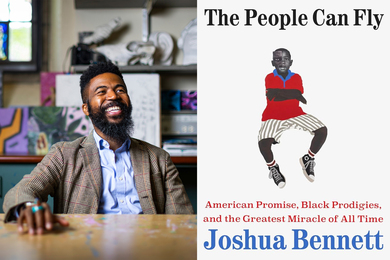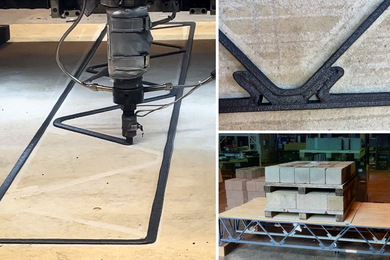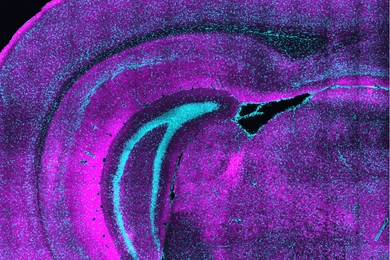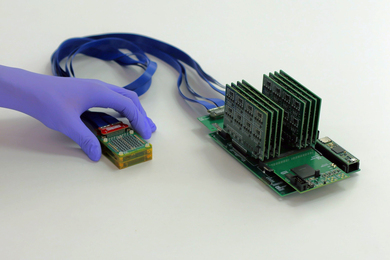After recent stops in Tel Aviv, Hong Kong, and London, MIT President L. Rafael Reif and the Better World tour returned stateside to Los Angeles for a sold-out event with more than 500 attendees at Universal Studios Hollywood on Feb. 7. The tour has showcased MIT achievements and potential around the world, and generated global momentum for the MIT Campaign for a Better World.
Change and the spirit of exploration were the dominant themes of the evening. Stephen Allsop PhD ’16, a postdoc in cognitive neuroscience at MIT’s Tye Laboratory and an accomplished jazz pianist, began the program with a reflection on the science and magic of learning. He likened the improvisational spirit of jazz to the questioning drive that he has found at MIT. Following Allsop to the stage were two members of California’s MIT community, Alex Padilla ’94, the California Secretary of State and a former state senator, and Fariborz Maseeh ScD ’90, founder and managing principal of Surlamer Investments LLC, and founder and president of the Massiah Foundation, a philanthropic investment firm. Maseeh introduced President Reif on behalf of the Los Angeles Host Committee.
“I find it especially meaningful to come together with our MIT family tonight,” Reif said. During a time of momentous change in our country, “it is vital for research universities like MIT to be leaders in education and research, and in particular, leaders in solving problems.”
Reif introduced three faculty members who exemplify MIT’s “outside the box” style, starting with Heidi Williams, the Class of 1957 Career Development Associate Professor in the Department of Economics. WIlliams explores the impact of financial incentives on the pharmaceutical industry. “Our idea,” she said, “is that private firms may face too few incentives to develop [many] socially valuable drugs,” such as treatments for early stage cancers. “I particularly love doing this research at MIT,” she said, where individuals in many fields are driven by their desire to make the world a better place.
Martin Culpepper SM ’97, PhD ’00, professor of mechanical engineering and MIT’s “Maker Czar,” described himself as a lifelong “troublemaker” who, as a teenager, attempted to reverse engineer the carburetor of his father’s Oldsmobile Cutlass. “I put it back together,” he explained, “except for a few unimportant mystery pieces.” Culpepper’s goal is to “strengthen our makerspaces and empower our makers” with new spaces, tools, and infrastructure, as well as investments in the community of MIT makers, to “[bring] the heart into the maker landscape.”
Nergis Mavalvala PhD ’97, the Curtis and Kathleen Marble Professor of Astrophysics, described the deep roots of her work at MIT. Last year, Mavalvala and colleagues garnered global attention for the first direct observation of gravitational waves. While their achievement is a significant “first” for MIT and the scientific world, Mavalvala emphasized that it was discovery “100 years in the making,” with MIT producing major contributions for more than 45 years.
In his closing remarks, President Reif encouraged attendees to join him in building a strong future for the Institute, in which individuals like Culpepper, Mavalvala, and Williams can flourish. “We have embarked on a bold Campaign to deliver that future,” Reif said, “and if we each do our part, gift by gift, we will get there faster than you think.”
The Better World tour continues in Mexico City on March 23 and in Washington on April 13. For details, visit betterworld.mit.edu/events.












